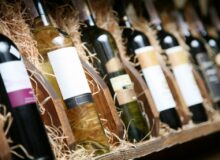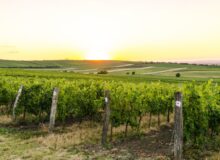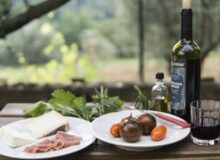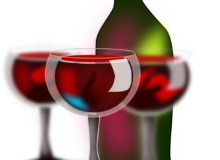Today, the majority of wines are best drunk immediately. But if you are looking for a wine to nurture for the future it is often smart to look for a wine from a good vintage.
Few of us are fortunate to live in a house with a readymade wine cellar or even a house with a cool dark basement. Nevertheless for wine lovers a “cellar” or wine fridge is not just a small nice to have-it’s essential.
With an attentively stocked cellar you can be confident of having the right wine for the right occasion, even if most of them are for ordinary quaffing.
What I like about wine buying is the mystery behind it. It’s no science. It’s important to have a few different places to buy your wine. Not only just to keep it interesting, but also it allows you to try to build some relationships. Not all your wine should be bought at the grocery store or the large outlet. There’s always several nice wine shops in town and yes, you may pay a little bit more but you might get some valuable information in return…
Is there a guarantee that you will be a successful wine buyer and how do you know if you are good at it? The answer is not plain and simple but if you are thoughtful about it…
The joys of drinking those budding wines that you have stored for its peak of maturity for a certain occasion (recognizing your thorough judgment/luck) can be rewarding and a lot of fun!
So what’s a good place to start? A good place to start is with wine producers.
You might ask… Is it okay to purchase blindly from certain producer’s …Sure!
For example , these days for Spanish wines, I can reach for an Eric Solomon and Jorge Ordonez wine. If it is under $25 per bottle and it is in my budget; I will try it. Another is Kermitt Lynch; I will certainly consider his stuff because it’s always well-made. Try one of his burgundy wines (red or white). He has great French product that I trust and a lot of good restaurants do as well. Jeffrey M. Davis is excellent too especially for Bordeaux wines!
Mainly these producers are purchasing grapes or finished wine from countless minor estates, then blending, bottling and selling the wine under the their name. A lot of the times it’s excess grapes from expensive vineyards.
In Burgundy, France some of the best, and well-known, burgundy producers are primarily négociants (merchants)—including Louis Jadot, Joseph Drouhin, and Bouchard Père & Fils and they make great wines at all price levels.
Recently folks like distributor Cameron Hughes and Australian Cult winemaker Chris Ringland with the same inspiration are buying lots or creating ambitious even nontraditional wines that I like as well. There are a lot of good ones out there.
So what about storing the wine. Here are a few general tips on storing wines…
Basic Red Wines:
Cabernet Sauvignon wines are often created to be drunk young but in overall will improve with aging. Bordeaux, France produces Cabernet based wines that have varying degrees of aging potential. A Classed Growth from a good vintage may sometimes need 10 years to mature. Some Cabernet Sauvignon from Napa Valley, California and Washington State have aging potential as well.
The Bordeaux’s best Merlot -based wines also need about 10 years to mature. Lesser Merlot’s tend to peak in 3-5 years.
Pinot Noir is the ‘noble’ grape. It can age well if grown correctly. Hailing from Burgundy France; it grows best in Oregon, California and New Zealand. A good red Burgundy needs about 2-5 years to develop its peak complexity.
Syrah/Shiraz based wines especially from the Rhone, France are outstanding wines for aging; some can be cellared for 20 years. In general terms 4- 10 years and let’s not forget that artificial aging achieved through 30 minutes to an hour of decanting will help you consume these wines while they are young.
…and now the
Basic White Wines: (which very few whites are truly suited for aging too long in the cellar or wine fridge).
A Grand Cru Chardonnay can arguably last up to 15 years but all Chardonnay is really at its best between 2-5 years.
Riesling is usually immediately drinkable but can age well….especially the German Rieslings have great storage potential, the Grand Cru’s can store for 10 years or more. Look for the Rieslings from Washington state, upstate New York Canada for excellent drinking.
Sparkling and Fortified Wines are a story as well and both can be kept for years but that is best another story for another day.
Well obviously there is an inherent risk with aging but as you can see… buying, storing and finding wines to store can be very rewarding… and remember it’s not a science.







